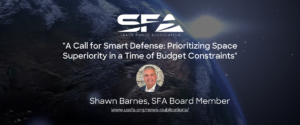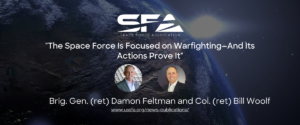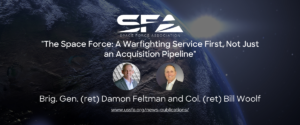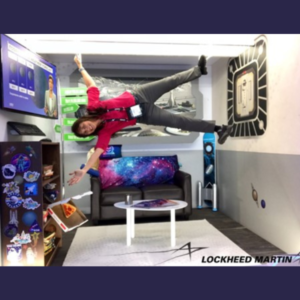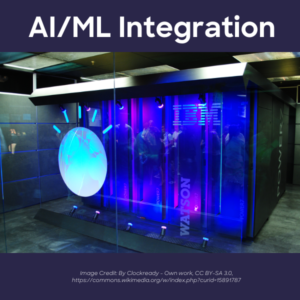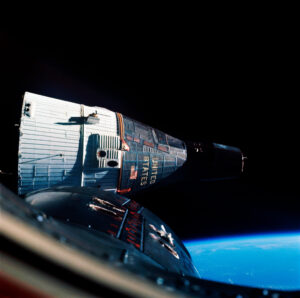SFA recently had the opportunity to interview CMSgt Jacob Simmons, Command Senior Enlisted Leader at Joint Task Force – Space Defense, who recently published Ascendancy: The Space Warfighter Mindset which outlines some key characteristics necessary for the space warfighter culture to develop.
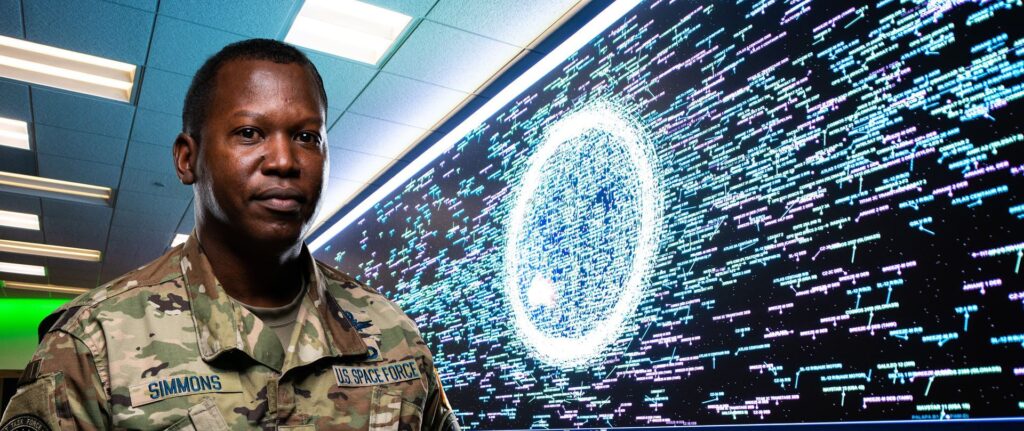
Pictured: CMSgt Jacob Simmons helps lead Guardians in support of Joint Task Force – Space Defense (credit JTF-SD/PA)
With the USSF Human Capital Management Strategy set to be released later this month, we wanted to get his perspective on the importance of developing the space warfighter mindset.
SFA: Why did you get into space operations and why did you stay?
CMSgt Simmons: I have had the exceptional honor of serving as a space professional in the Air Force and now the Space Force for over 29 years. I was launched into space operations as a first-term Airman, I immediately fell in love with space, and I truly never looked back. With each enlistment, my career became more of a calling. This has never been my occupation; it has always been my profession. I quickly became one of those early “cadre zealots” that actually took to heart the facts and findings of the Space Commission and I have dedicated my career to developing and advancing space professionals and our mission to meet this very moment. I take tremendous pride in how far we have come in such a relatively short time. Honestly, the realization of our Space Force and Space Command is still sinking in. Unfortunately, our adversaries have been moving out faster and with more focus over the last two decades and they have gained ground on us where we should have held our lead. We can’t be content with organizational change – we need cultural change. I hope “Ascendancy” gives this new generation of warfighters the same lift that set me out on my spacewalk.
Q: Why did you write Ascendancy: The Space Warfighter Mindset?
CMSgt Simmons: We are staring at the dawn of an new era. A time we have never known is rising on the horizon and we must also rise to meet it. Everything in space is accelerating, adapting, and advancing, from technology to the threat…and so must our thinking. “Ascendancy,” our supremacy in space, is meant to be more than an ideal…it is meant to change our mindset and elevate our culture.
SFA: What key points are important for the American people to understand?
CMSgt Simmons: The preservation of our space capabilities protects our American way of life. Our competitors understand our reliance on space and they want to take advantage of the chinks they think they see in our American armor: comfort, complacency, and overconfidence. The fact is, our high ground is no longer out of reach or out of harm’s way. If we fail to hold this line, we risk losing it all. We (American society) must put a higher premium on our freedom to access and ability to operate in space, and be willing to fight for it whenever that freedom is challenged. It is imperative the American citizen fundamentally understands why we can never have a day without space.
SFA: Do you believe America has an opportunity to lead space warfighter culture development?
CMSgt Simmons: America has more than an “opportunity” – we have an “obligation” to lead. We lead with assertiveness and assurance in every other domain – Space is no different. We must set the standard for all others in Space through our character, commitment, competence, and credibility. As the world looks beyond the horizon and on to the stars; towards the undetermined and the undiscovered; we must establish and model the behaviors for all others to emulate, just as we have on land, at sea, and in the air.
SFA: What is the key characteristic most important to space warfigher development?
CMSgt Simmons: Spacemindedness. Our most capable weapon system breathes AND thinks. As General John “Jay” Raymond says, “Space is hard.” It was hard when we were unchallenged, now space is really hard! Intel-driven, cyber-powered space operations are complex, complicated, and challenged. Our distinction, as credible and equal joint warfighters, is built on expertise and experience; knowledge and know how. We must see ourselves as more than value added to the fight – we are now the determining factor for when, where, and how we fight. Our reputation (our credit) must be based on our ascendancy in space.
SFA: How can the USSF help foster these characteristics?
CMSgt Simmons: We should see each Guardian as an “Ascendant” to what is now, and what will be tomorrow; not as a descendant of what has been, and what was yesterday. As General Charles “C.Q.” Brown reminds us, we must “Accelerate change or lose.” The hardest thing to change is the mind; our biases and our thinking. Space is no longer permissible or predictable. First, we all must acknowledge a felt need for change. Ascendancy is the change we asked for in 2000; Ascendancy is the change that we needed in 2007; and Ascendancy is the change that the moment now demands. Second, advancing change requires bold leadership. Leaders rise and thrive in change; when it is confusing, chaotic, crazy, and in crisis. Lastly, we can’t get discouraged by the growing pains. Change is often jarring. It is uncomfortable and can be fatiguing. But this is what growth looks and feels like. The felt pain in the process is actual proof of progress. We are changing (growing) out of necessity. As Guardians, we shouldn’t be satisfied simply being in the Space Force; we should each be striving to build the Space Force. We really only have two choices, act to change or react to change.
SFA: What are some of the pitfalls to establishing the needed culture?
CMSgt Simmons: First, Space is too big to go it alone. It touches and must be touched by every other domain. Second, culture isn’t just about how we see ourselves – it’s just as much about how others see us…that includes our adversaries. And third, culture can’t be directed down. Our most junior warfighters and frontline leaders should be encouraged to take ownership for what they are inheriting, while acknowledging experience as a teacher. Let’s not leave our warfighter culture to chance; wondering, watching and waiting to see what grows up under our feet.
SFA: Can culture development help lead agile acquisitions for the USSF?
CMSgt Simmons: Our culture must absolutely lead our capability, that’s the vision of “Ascendancy.” It is believed Albert Einstein once said: “If I were given an hour in which to do a problem upon which my life depended, I would spend 55 minutes defining the problem and 5 minutes solving it.” Thinking and understanding is the key to overcoming our challenges in space. Measuring twice (prioritizing requirements) and cutting once (fielding systems) saves time and resources, and ensures we get the right kit to the fight faster. The manufacturing must meet the mission, with the warfighter’s felt need kept at the forefront. Space is now a warfighting domain and we must invest more thoughtfully in our readiness, reliability, resilience, resourcefulness, and reconstitution. As warfighters, our mandate is to win. It is why the warfighter exist. That cannot get lost in space.
